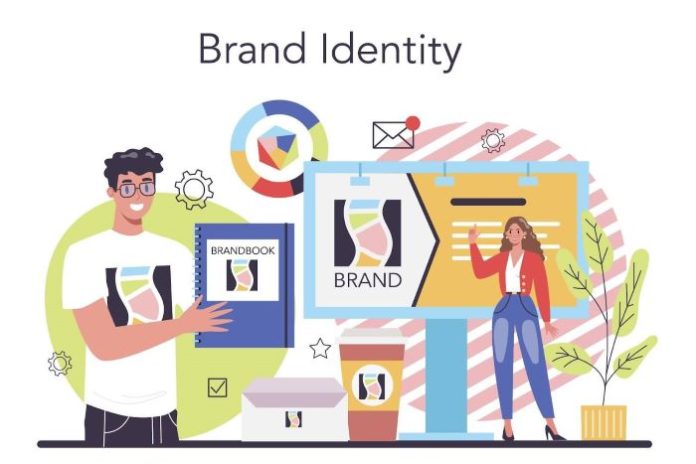Search has evolved from “find pages” to “get answers.” This makes the person behind the message just as important as the domains they manage. This is exactly why personal branding remains both the fastest-growing and most resilient method for marketers. Especially in AI-driven search environments.
With AI Overviews or Gemini summaries taking over the most valuable positions in search, the marketer who appears as a trustworthy human voice gets cited. They get clicked and remembered. This is where automated branding becomes essential, helping businesses stay visible and consistent at scale. Know more about the importance of branding and the impact it has on your marketing campaigns.
Key Takeaways
- Personal branding is crucial in today’s marketing landscape, especially with AI-driven search results.
- A personal brand consists of your content, expertise, and signals linking your name to topics, which builds trust with both algorithms and users.
- Using tools like Gemini visibility trackers helps you monitor your presence in AI responses and identify content gaps.
- Effective personal branding enhances SEO, authority, and audience connection, improving conversion rates.
- Build your brand by creating clear author signals, maintaining a consistent identity online, and regularly tracking the impact of your efforts.
Table of Contents
- What is Personal Branding Anyway?
- What Makes Branding Important?
- The Impact of Personal Branding on Marketing Success
- How to Build a Brand from Ground Zero?
- Creating a Power Content Strategy for Personal Brand Growth
- Making Use of Digital PR to Boost Your Brand
- Aligning Branding Strategy with Business Goals
- Measuring the Impact of Branding Efforts
- Conclusion
What is Personal Branding Anyway?
If you’ve ever wondered “what is a personal brand in practical terms,” know that it’s the sum of your authored content, visible expertise, structured author data, and the corroborating signals. These tie your name to topics across the web. Think of it as the consistent proof that a real person with knowledge, values, and receipts stands behind the content. This makes it easier for algorithms and audiences to trust the advice and attribute credit correctly.
The idea becomes concrete when you connect it to AI search. If AI Overviews or Gemini mentions “you” by name and cites your work, your presence wins the first impression. This happens before users ever scroll. This is why many teams now use a Gemini visibility tracker to see when and how their names surface inside AI responses. The best part is that a robust visibility tracker also helps you discover content gaps. It also helps you benchmark against competitors and protect your brand reputation.
What Makes Branding Important?
People are now more interested in following other people, not brands. That’s especially true when what they search for requires first-hand experience or perspective.
For example, it’s simpler to assess a site’s experience, expertise, authority, and trust for a human with a name and a history. It’s more challenging for a nameless site that uses a generic voice.
Similarly, in news feeds and AI summarizations, a recognizable name with a constant context serves as a cognitive shortcut for trust. This increases the likelihood that a user will interact with the answer. It helps them remember the answer for subsequent access.
The Impact of Personal Branding on Marketing Success
Branding can have an impact on your marketing campaigns in more ways than you might think. Here’s a bit more to help you understand the importance of personal branding for marketing success.

Improved Authority and Expertise
Authority grows when your articles carry clear bylines, robust author pages, and structured data. This helps Google connect your identity to your content and topic areas across the open web. This is the practical core of personal brand building for search. You publish useful work and make the author machine-readable so systems can confirm who said what. They can also determine why it should be trusted.
Personalized Corporate Branding
A strong individual voice brings warmth and accountability to a company feed or site. This aligns with Google’s push to surface perspectives from real creators and communities alongside traditional resources. When a marketer shows their process, tests, and outcomes, audiences get signals of honesty and skill. Additionally, algorithms get a stable entity they can recognize and reuse in answers. That human layer turns content from “pages” into “people.” This travels farther on social media. It earns more references and is easier for AI systems to contextualize.
Enhanced SEO and Online Presence
AI Overviews are now widespread and can sit above organic results. This directly changes where visibility begins and how users decide what to click. When your name is consistently tied to high-quality, experience-rich material, the odds improve. You are more likely to be referenced and cited in those AI blocks. This is the new front door of discovery.
Improved Conversions Through Connection
Trust formed through a steady, human voice lowers friction when a prospect finally needs a solution. Especially because many sessions now end sooner once users feel they “have the answer” from AI. If they recognize your name from prior helpful content, it helps. Seeing it again as a cited source in an AI summary makes your recommendation feel like a safe step. It doesn’t feel like a cold click. That’s how a well-built personal brand quietly moves users from awareness to action. Even when the classic SERP funnel is shorter.
How to Build a Brand from Ground Zero?
Start with your topic focus and proof of experience. Then make authorship explicit on every piece you publish, including a dedicated author page that lists credentials, past work, and contactable profiles.
If you’re creating your brand for the first time, prioritize depth over volume. Answer specific problems and document the steps taken and results earned. This aligns with experience signals that algorithms and readers both value. As you discover how to create a personal brand, add structured data for Article and Person. Keep your identity consistent across platforms. Additionally, link your author page from each byline so systems can “follow” you across your corpus.
When developing a personal brand that earns citations, consider writing “explain and prove” content. This content should show firsthand inputs, decisions, and outcomes. Since those details are what differentiate your answer from an interchangeable summary, they are crucial. Over time, the scaffolding you’ve put in place – clear bylines, consistent profiles, and structured author signals – turns scattered posts into a graspable entity. As a result, this entity gains a reputation that algorithms can reuse.
Creating a Power Content Strategy for Personal Brand Growth
A good content strategy is essential for developing your brand. Here is what you should do:
- Make sure that your personal branding strategy integrates your Social and Community interactions. This way, your voice gets noticed before AI can cite your statements from long-form posts to short videos.
- Performance still matters, so meet Core Web Vitals thresholds. Especially watch Interaction to Next Paint, which replaced FID as the responsiveness metric in 2024. It remains a quality signal that users feel, and platforms track.
- Share field-tested frameworks and practical branding tips inside your articles. But keep the emphasis on showing rather than telling. This way, readers and algorithms can detect real experience.
- If you’re weighing AI in digital marketing strategies for content scale, use it to speed research and outlines. Reserve your energy for the parts only you can add – the proof that trains both users and AI to trust your name.
Making Use of Digital PR to Boost Your Brand
It’s vital to utilize digital PR opportunities and use them to build your brand. For starters, pitch stories that demonstrate unique data, methods, or case outcomes tied to your name. Then consolidate mentions on your author hub, so Google and Gemini can resolve scattered citations back to you.
Track whether those efforts show up in AI surfaces by monitoring AI Overviews coverage. Use an AI or Gemini visibility tracker to see which prompts mention you, which pages get cited, and how sentiment looks over time. This is significant as AI Overviews will often go beyond typical organic results. This means that your expert insight in a niche magazine or your description on a personal site may be enough to get you included.
Aligning Branding Strategy with Business Goals
First, you must determine what outcomes to expect from your branding efforts. If your funnel historically depended on organic clicks, accept that AI summaries can reduce sessions. Plan to move value higher in the journey by having your authored content appear in the exact place where attention starts.
Along the way, pay attention to major updates, like the March 2024 policies on low‑quality and site reputation abuse. Your personal work needs to sit on foundations that won’t get dampened or deindexed. When you do this well, the cumulative recognition around your name becomes a growth asset that the whole company benefits from. This includes channels beyond search.
Measuring the Impact of Branding Efforts
To gauge the success of your personal branding strategy, you must proceed systematically. Here’s what to do:
- Create a simple scorecard that blends “identity signals” and “demand signals.” Start with author page visits, byline impressions, and AI citations. Then move to forms, replies, and sourced revenue. Track whether AI Overviews include your content for priority queries, whether your author entity is being cited, and how often a Gemini or AI mode answer names you.
- As your reputation grows, watch for secondary effects. These include invitations, referrals, and earned media originating from people recalling your work from AI.
- Improving technical quality helps realize the power of branding. Fast, stable pages hosting your author content give users a smoother confirmation experience when they land to verify the source behind an AI citation.
- Update the source content and consolidate clarifications on your author hub. This ensures AI renders have better information to pull from. Over time, those corrections and clarifications reduce the mysteries of personal branding by showing that consistent identity and transparent documentation steer how your work is framed by automated systems.
Conclusion
Personal branding matters a lot today. Modern marketing rewards the humans who show their work, mark up their authorship, and publish with enough clarity that both people and AI can repeat their names with confidence. Build the habit of sharing first‑hand proof, keep your identity consistent, and machine-readable. Watch as your presence starts appearing exactly where decisions now begin – inside AI answers at the top of the page.











